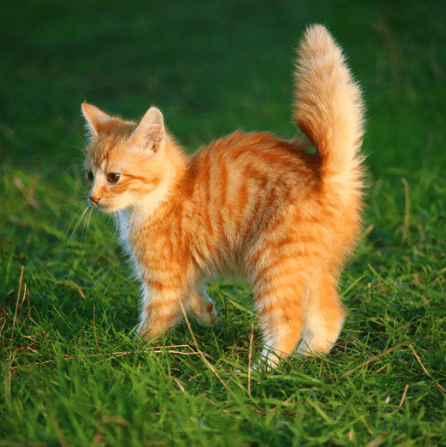As a cat owner, you probably already know that your feline friend’s tail can be a pretty good indicator of their mood and feelings. But did you know that there are many different positions and movements that a cat’s tail can make, each with its own meaning? Here are some of the most common ones:
- Straight up
When a cat’s tail is held straight up in the air, it means they’re feeling confident, happy, and possibly even a little bit excited. This is often seen when a cat greets their owner or when they’re exploring a new environment.
- Puffed up
A puffed-up tail usually means that a cat is feeling scared or threatened. They may be trying to make themselves look bigger in order to intimidate whatever is scaring them.
- Tucked under
When a cat’s tail is tucked under their body, it usually means they’re feeling nervous or submissive. This can be a sign that they’re feeling uncomfortable or scared.
- Twitching
A twitching tail can mean a few different things depending on the situation. Sometimes it’s a sign that a cat is annoyed or irritated, while other times it can be a sign that they’re excited or getting ready to pounce.
- Wagging
Cats don’t typically wag their tails in the same way that dogs do, but they may flick their tails back and forth when they’re feeling playful or curious. If your cat is wagging their tail while they’re interacting with you, it usually means they’re happy and engaged.
- Wrapped around another cat
When a cat wraps their tail around another cat, it’s a sign of friendship and affection. Cats who are close friends or siblings will often do this to each other.
- Lashing
If a cat’s tail is lashing back and forth quickly, it usually means they’re feeling angry or aggressive. This can be a sign that they’re feeling threatened and may lash out if provoked.
Understanding your cat’s body language is an important part of being a responsible pet owner. By paying attention to their tail movements and other signals, you can better understand how they’re feeling and provide them with the care and attention they need.

